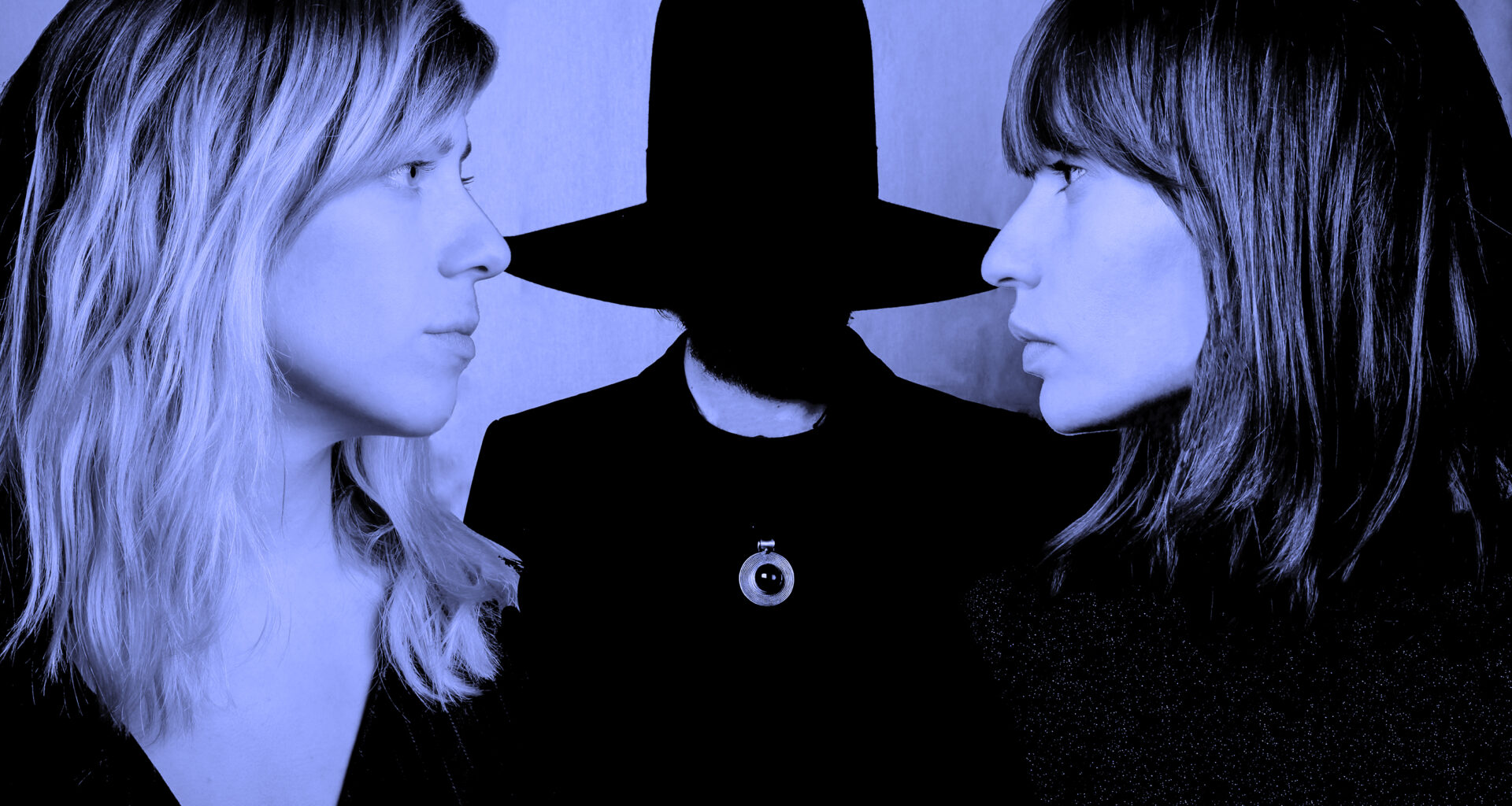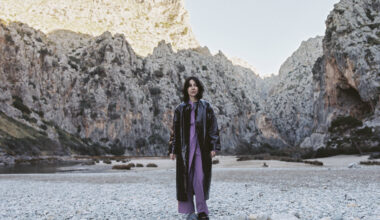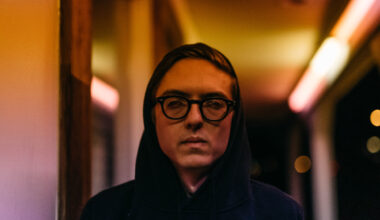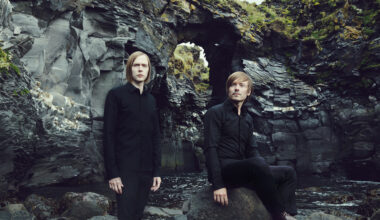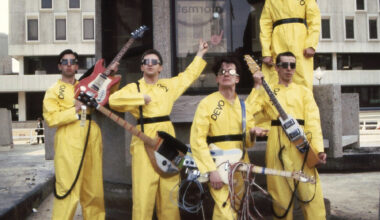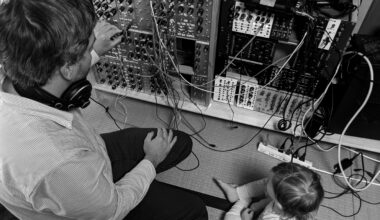With a thoroughly 21st century attitude that mashes up styles, sounds and influences, Parisian three-piece Juniore are producing their own unique take on 1960s French pop
French musicians have a long history of repurposing global music to fit their sense of native chic. Whether it’s the yé-yé take on beat music, Serge Gainsbourg’s dub excursions, Métal Urbain’s electronically enhanced punk, or Ed Banger’s warped house music, the results are always unique and enthralling.
“You don’t have to be any way the world tells you that you have to be,” explains Juniore’s songwriter, singer and multi-instrumentalist Anna Jean, down the line from her top floor flat overlooking the romantic vistas of Paris. “You can make music and get the best out of what you make of it.”
Blending classic 1960s French pop, surf rock guitar, post-punk rhythms and a general retrofuturist air into their self-styled yé-yé noir music, Juniore are the latest in a long line of acts to carry on the legacy of Francophile recreations of pop.
Since forming in the French capital in 2013, the band has resolutely paid homage to the music they love, while creating their very own sonic identity. The release of the ‘Marabout’ EP in 2015 and their 2017 album ‘Ouh Là Là’ slowly established their sound. The following year, British label Outré Disque collected together their finest moments to date along with a stunning new track ‘Magnifique’, which became something of a staple on BBC Radio 6 Music, as has their latest single, ‘Ah Bah D’Accord’.
Their recently released album, ‘Un Deux Trois’, expands the possibilities of yé-yé noir further, adding shades of modern Berlin techno, the rhythmic grooves of Can or Neu! and splashes of the experimentation of esoteric electronic pioneers like Tangerine Dream and Cluster. It is work of intense colour, with new sounds emerging the more you delve in.
While crafting this new album, the three-piece (completed by Samy Osta, who produces the band and performs as “The Thing” – the mysterious, masked bassist – and drummer Swanny Elzingre) took cues from electronic music past, and used the studio as another instrument in the mix.
“We recorded some of the songs as if we were in the 60s, with a tape recorder, a huge tape recorder,” says Jean. “It was one take, we would just play the song, and on other songs we worked in the same way as we would if we were making electronic music – all loops and drum machines. Some of the sounds are closer to electronic music than might be associated with us. It was something we wanted to do, to twist classic songs with all the tools we have available today.”
Throughout the album, drum loops, subtle vocal treatments and stabs of synth bring a new depth to their music. The added echoes and reverbs on tracks like album opener ‘Soudain’ recall the studio trickery of many a dub master, while ‘Ah Bah D’Accord’, with its big beats, garage pop organ and hazy vocal samples, acts as a grand example of the ideas that this yé-yé noir sound can explore, while at the same time providing radio-friendly bangers.
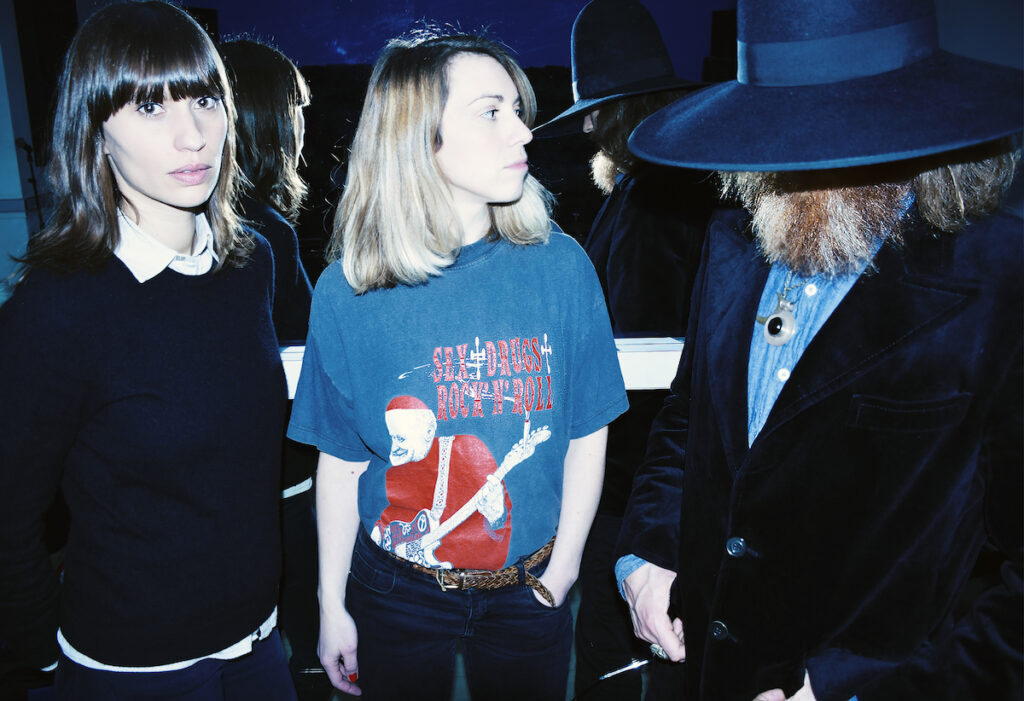
Juniore is the result of an osmosis, not just of musical influences, but of culture from around the world, which is to be expected given Jean’s upbringing as the daughter of globe-trotting, Nobel Prize-winning author and academic JMG Le Clézio. In her youth, she wilfully looked outwards from her homeland for her cultural cues.
“I began listening to French music quite late,” she explains, outlining her younger days as a defiant Anglophile, often at the expense of her native culture. “I started out listening mostly to The Beatles and The Beach Boys and a lot of English language music.
“I only really came to French music in my 20s when I started writing for Juniore and imagining what the band would sound like and be like. I wanted to establish it as part of a French identity. It might also be because the French music I liked was so influenced by the English and American bands of the 60s, maybe that is why it sounds so familiar to British audiences?”
Of course, this is nothing new. So much of France’s most successful pop music came about by stamping its own mark on music from the UK and the US. Juniore’s music is, after all, a 21st century update of 60s yé-yé pop. It is expected to translate well in France, but elsewhere? The question of cultural barriers comes up, and whether or not being totally familiar with French culture is a hindrance to getting what Juniore is about.
“People coming to our music don’t have to know anything, they just have to be open to everything,” says Jean. “The way they would be if they were talking to someone on a train and being in a good mood. I always imagine that no one knows anything about what we do, even people who come to see our shows, so I think we try to be very sincere. The way you would be if you met someone when you are travelling, and you don’t really hold back because the moment is such a privilege. You feel more free! I think our music has that. It gives you that freedom.”
It’s an idea that is important to the band, and being French allows them more freedom to create because of the country’s subsidies for artists (even unemployed artists). But, taking a deep intake of breath, she ponders how this fails to solve the often hard reality of creating art.
“Because it is so hard to make a living, everyone has jobs,” she says. “I have another job. I’m a translator, so that I can continue to make the music that I want to make. England is very special, because not having that financial support – and I’m not saying it is good because I don’t think it is – has made it a more creative place in many ways.
“The British bands we’ve played with are so passionate. You know that everyone has other jobs, that they’ve travelled far, and carried all their gear to be where they are for that one night. In France it is different. It is wonderful to have financial support, my life would be very different without it, but I think it makes making money from music less urgent.”
It’s easy to assume that all marginally successful acts are full-time with no other distractions, but this is rarely the case. Music is often carried by passion and a deep sense that what is created means something.
“There are a lot of times we would talk, me and Swanny especially, about how we felt like it would have been better if we had been nurses or doctors, had a more significant job, did something daily that would be more useful to the world,” she offers. “Music brings us together, which is really nice. There is so much dragging us apart, so music is really important for doing the opposite. We get to participate in our own way to try to make things better.”
She explains that in their own way the band take on “worthwhile fights” not “seriously or directly” but in a poetic way. Various promotional blurbs on ‘Un Deux Trois’ state that the record addresses sexism, ageism, racism and consumerism. Reading the translated lyrics on the album’s inner sleeve, the obscure poetry that Jean has penned gives very little away.
In conversation, she’s the same. She states that her songs are “a funny way to talk about something negative and to make it less negative in a sense” and leaves it at that. The English translations lose so much of the original charm of her words, whether you understand French or not.
“I could have written the lyrics in English, but it would not be great,” she says. “I could have tried, but I felt that it was important to present our ideas in French.”
While it might seem obvious that a band would sing in their native language, such is the commercial dominance of Anglo-American music worldwide, explains Jean, that “serious consideration” is always given to writing songs in English. Juniore made the right choice. Their language’s rhythmic qualities and ability to evoke distinct images, makes it difficult to imagine these songs in any other tongue.
Juniore’s music has been described as “cinematic”, not least by the band themselves. Jean explains that the group think about specific imagery when creating each song. Overall, she sees her music as the soundtrack to an unmade “road movie”.
“I always fantasised that it would be a cool thing to make that kind of soundtrack,” she says. “Music to dance to, but also music to drive to – sounds that fit perfectly with the landscapes as you are driving, maybe through a desert.
“As a child from the 80s and 90s, I grew up watching a lot of TV and films. Music is wonderful because you get to mix not just the notes, but the lyrics and also the images that you want your music to be associated with.”
Juniore’s aesthetic is an area they maintain complete control over, and they have also created a visual universe where their videos, design and photography form the fabric of the band, as much as the music.
The illustrations for ‘Un Deux Trois’ were scribbled by Jean herself, and they have worked with the same filmmaker/photographer, Julia Grandperret, across most of their visual output. Consider this alongside the fact that all the music is recorded and produced in Samy Osta’s studio, and you get an impression of a band keen to create everything on their own terms.
Despite describing herself as a “homebody”, preferring to spend her time in her Parisian apartment, Jean sees touring as an adventure. The band have made several trips to the UK, paying their dues in “corners of dive bars with duct tape holding the stage together” to playing in front of thousands, opening for The Dandy Warhols on their 25th anniversary tour and at festivals like Bluedot.
“Last year, we went to the UK three or four times, and each time it was for a relatively long period. When you are playing every night, driving your own car with all your gear in the back to places you have never been, it seems like a really strange time. Every single night is a surprise.”
She continues to explain the “surprise” is often where they get to play.
“You have no idea when you start making your music that you’ll get invited to somewhere like Romania, or anywhere really,” she says. “We played there last summer, in the Transylvanian region and it was very strange. It was a big festival in Sibiu with theatre, dance, performing arts and us, playing in this huge plaza on a huge stage with Romanian locals watching us. It was weird, but we had a great time.”
Get the print magazine bundled with limited edition, exclusive vinyl releases
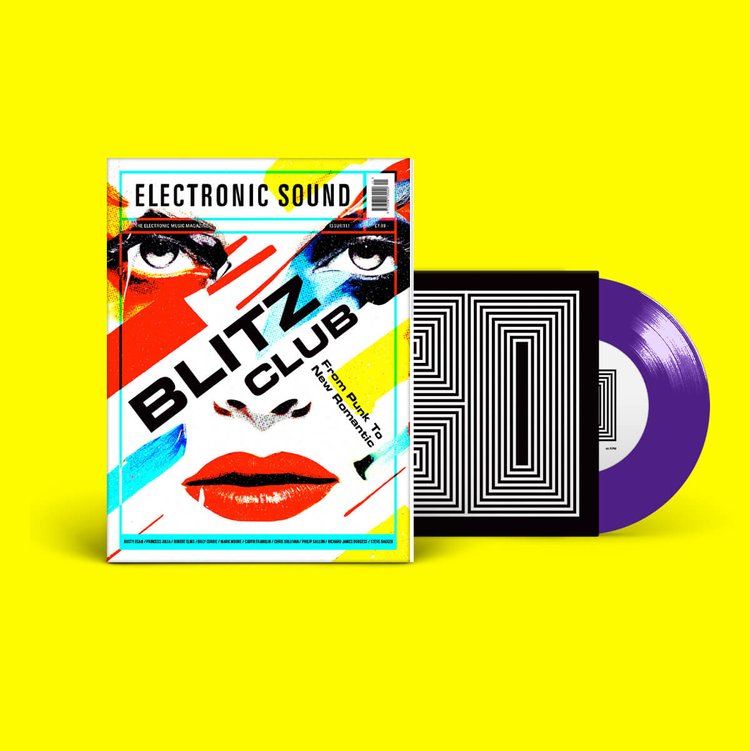
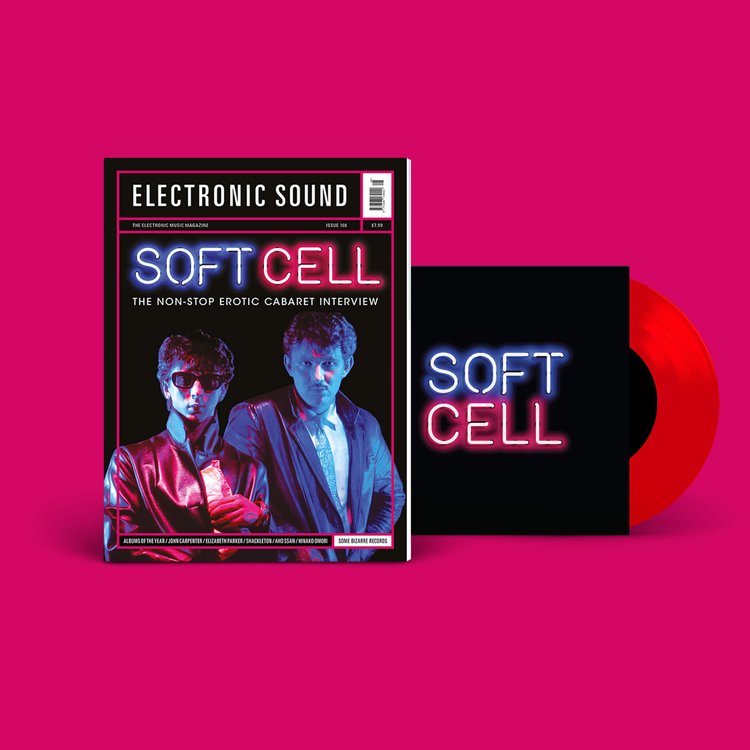
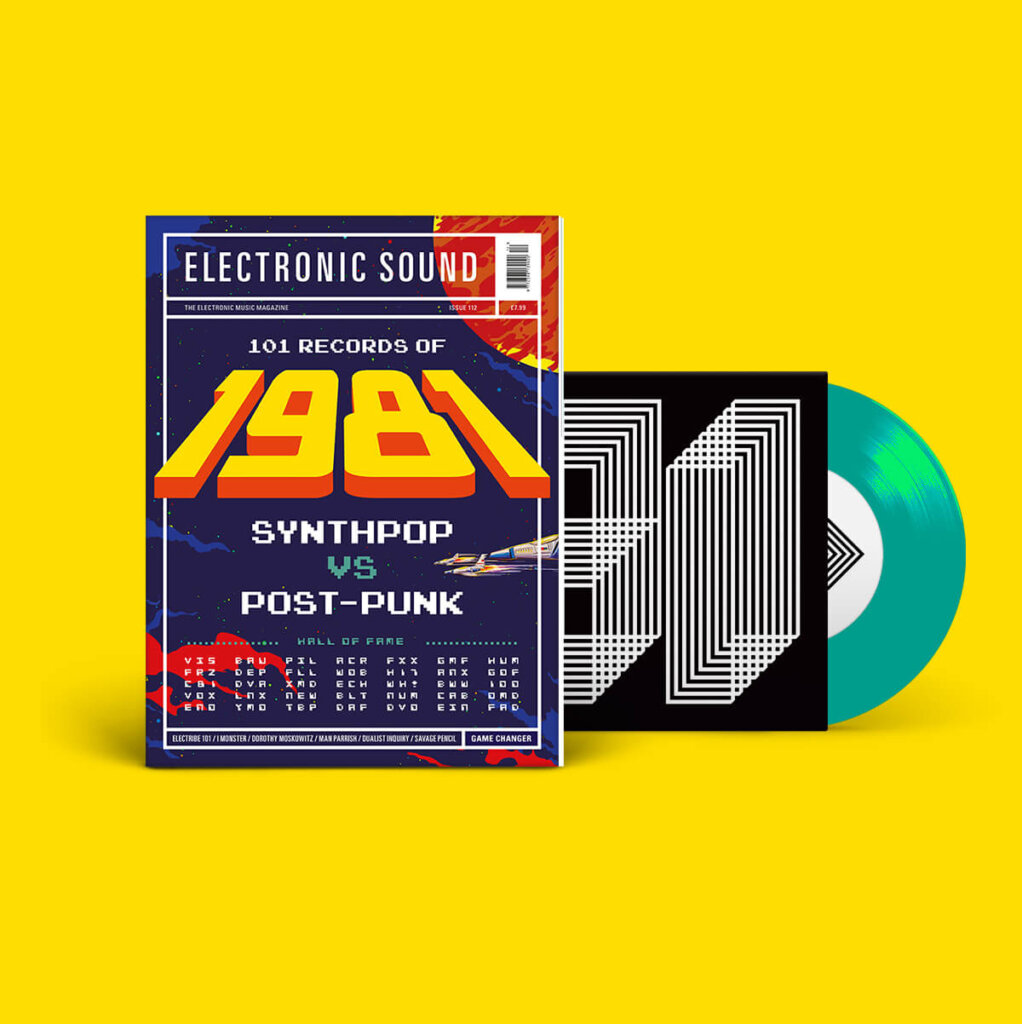
Away from the romanticism of performing in interesting places and life on the road, Anna Jean is again quick to inject some reality into the discussion. Touring takes its toll.
“Every time we’ve toured the UK, there is always one of us who is sick, but it’s never at the same time,” she laughs. “It’s never anything serious. I think it was the first tour, Swanny had broken her foot, and then the second time I had an eye infection and I couldn’t see. The third time, Samy had a bad back so we had to carry all the stuff. Every time, one of us had to be compensated for by the others.”
Why, we wonder, persevere with a tour in such circumstances?
“I think it’s the adventure. We all feel like we are Indiana Jones,” adds Anna Jean. “You don’t know who you are going to meet and most of the time you don’t even know where you are going to sleep. You don’t know how the day is going to go, which is a wonderful feeling.”
With ‘Un Deux Trois’ out in the world, the band are set to play a raft of European dates, starting with a number of UK shows in April.
On record, so much of the new Juniore music is seemingly dancefloor-ready, but Jean explains that they don’t know how songs will work until they are played live, and how bizarre it can be for a musician watching the reaction unfold.
“I find you never know which songs are going to be easy to dance to. When you start to play them live, you see how people react, which is funny because they watch you, but they tend to forget you can see them as well. They act like no one is watching, but we can see them! We can’t wait to jump into that new adventure… with all the broken feet and bad backs.”
‘Un Deux Trois’ is out now on Outré Disque
